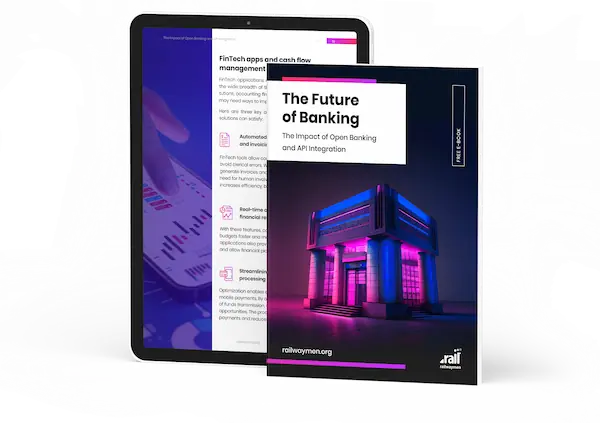The world of personal finance is undergoing a radical transformation thanks to rapid advancements in financial technology. No longer confined to the realm of traditional financial institutions, individuals now have access to a plethora of tools and services that make managing their finances easier, more efficient, and more inclusive than ever before. Are you ready to harness the power of FinTech and revolutionize the way you manage your money? Join us on this journey as we explore the future of personal finance, and learn how you can make the most of the exciting new opportunities that await.
From digital banking and budgeting apps to credit monitoring and investment platforms, FinTech is breaking down barriers and empowering individuals to take control of their financial well-being. With a growing interest in cryptocurrency and innovative collaborations between fintech and traditional banking, the personal finance space is evolving at an unprecedented pace.
Let's dive into this fascinating world and discover how you can prepare for the future of personal finance.
Table of Contents:
1. Brief overview of the Evolution of FinTech.
2. FinTech and its impact on Finance Management.
3. The Advantages of Fintech in Personal Finance Management.
4. Key Trends Shaping the Future of Personal Finance Management.
5. Challenges and Considerations in FinTech Adoption.
6. Personal Finance Management Tools.
7. Digital Banking Revolution.
Brief overview of the Evolution of FinTech
Financial technology, or FinTech, has transformed the way we handle our own accounts, resulting in huge changes and advancements in the financial industry. FinTech has evolved from a specialized industry to a worldwide phenomenon, disrupting traditional banking and giving consumers greater control over their financial life.
The origins of FinTech may be traced back to the 1990s, with the introduction of internet banking and electronic payment systems. These developments paved the way for the digital revolution that would influence the future of financial services. With the introduction of smartphones and ubiquitous internet access, fintech businesses began to use technology to provide novel financial solutions directly to customers..jpg?width=1200&height=801&name=pexels-karolina-grabowska-4386431%20(1).jpg)
Financial Literacy and FinTech
Financial literacy is the foundation upon which successful personal finance management is built. By gaining insight into and becoming adept in various financial techniques, such as investing, budgeting, and personal financial management, individuals can make informed decisions about their finances and achieve their financial goals.
FinTech plays a crucial role in promoting financial literacy, by providing tools and resources that empower users to better understand their financial position and make informed decisions.

FinTech and its impact on Finance Management
The simplicity and comfort that FinTech provides to routine banking operations is one of the most noticeable effects of fintech on personal money management. Traditional brick-and-mortar banks sometimes needed consumers to visit physical locations to perform simple activities such as checking balances, transferring funds, and depositing checks.
FinTech platforms, on the other hand, offer user-friendly mobile applications and internet interfaces that enable consumers to do these chores with a few taps or clicks. This accessibility has made personal financial management more effective and time-saving than ever before.
Furthermore, the growth of financial technology has accelerated the creation of cutting-edge personal money management systems. Artificial intelligence, machine learning, and data analytics are used in these apps to provide individualized financial advice, budgeting aid, and investment suggestions. These systems enable consumers to obtain insights into their spending patterns, create financial objectives, and make educated decisions about saving and investing by combining and analyzing financial data from multiple sources. People are now more able to take charge of their finances, improve their financial well-being, and plan for the future as a consequence.
.jpg?width=1200&height=801&name=pexels-karolina-grabowska-4475523%20(2).jpg)
FinTech Innovations
The world is teeming with exciting innovations aimed at revolutionizing the way we manage our personal finances. From Vivid Money, M1 Finance, and Robinhood, to Revolut, Grow Credit, and Hopper, these groundbreaking personal finance startups offer a diverse range of solutions to help individuals manage their money more effectively.
By harnessing the power of technology, these fintech innovations are transforming the personal finance landscape, making it more inclusive, efficient, and secure.
The Advantages of Fintech in Personal Finance Management
FinTech has brought about numerous advantages in personal finance management, revolutionizing the way individuals handle their financial affairs. We decided to list some of the key benefits:
-
Efficiency: Time-consuming operations like as filling out paperwork, standing in lines, and processing physical documents were common in traditional banking processes. Fintech automates regular procedures and simplifies these processes by digitizing them, eliminating paperwork, and automating routine chores. Individuals save important time and effort as a result of this efficiency, allowing them to focus on other elements of their life.
-
Accessibility: Fintech has made financial services more accessible than ever before. With the rise of mobile banking and digital payment systems, individuals can now manage their finances anytime, anywhere, using their smartphones or computers. This convenience eliminates the need for physical visits to brick-and-mortar banks, allowing individuals to perform transactions and access financial information with ease.
-
Cost-effectiveness: Financial technology has upended the old banking paradigm by delivering more cost-effective alternative financial alternatives. Peer-to-peer lending services, for example, eliminate the need for intermediaries, lowering borrowing costs for people. Furthermore, as compared to traditional banking methods, digital payment systems and online banking services sometimes have cheaper fees, saving people money in the long term.
-
Financial Inclusion: technology has played an important role in fostering financial inclusion by providing underprivileged communities with access to financial services. Traditional banking systems may have rigorous standards or geographical constraints, making it difficult for some people to get financial goods. Fintech platforms, on the other hand, have used technology to reach out to these people, providing services such as microloans, mobile banking, and digital wallets. Individuals who were previously excluded from traditional banking systems can now engage in the formal financial sector as a result of this inclusion.
-
Innovation and Disruption: Companies that offer products and services based on FinTech are known for their innovative approaches to the financial sector. This competition drives innovation and forces traditional banks to adapt and improve their offerings, ultimately benefiting consumers by providing them with more choices and better services.

Key Trends Shaping the Future of Personal Finance Management
The future of personal finance management is influenced by various key trends that are shaping the way individuals manage their money.
Open Banking
Globally, open banking projects are gaining traction. These programs encourage financial institutions to securely exchange client data with authorized third-party suppliers. This trend enables users to consolidate their financial information from several accounts and institutions into a single location, allowing for improved financial planning and decision-making.
Digital Transformation
The ongoing digital transformation is revolutionizing personal finance management. Online banking, mobile payment solutions, budgeting apps, and investment platforms are becoming increasingly popular, providing individuals with convenient and efficient ways to manage their finances.
Artificial Intelligence and Machine Learning
AI and ML technologies are being integrated into personal money management software. These technologies are capable of analyzing massive quantities of data, providing individualized suggestions, and automating tasks like spending classification, budgeting, and investment management.
Automation and Robo-advisors
Robo-advisors are digital platforms that offer automatic investing recommendations based on algorithms and customer input. They provide low-cost investment options, portfolio rebalancing, and tax planning, making investing more accessible to a broader audience.
Cryptocurrencies and Blockchain
Bitcoin and Ethereum, as well as the underlying blockchain technology, are gaining popularity in personal finance. Despite the fact that the cryptocurrency market is very unpredictable, individuals are investigating the possibilities of digital currencies as financial assets and means of transaction.

Challenges and Considerations in FinTech Adoption
Addressing challenges and considerations requires a collaborative effort among FinTech providers, regulators, and users. By prioritizing security, user trust, education, inclusivity, and compliance, fintech adoption can continue to grow while ensuring a positive and sustainable financial ecosystem.
Security and Data Privacy
FinTech solutions involve the handling of sensitive financial information. The risk of data breaches, identity theft, and unauthorized access to financial accounts is a significant concern. It's crucial for fintech providers to have robust security measures in place to protect user data and privacy.
Regulatory Compliance
Fintech firms frequently operate in heavily regulated environments. Financial requirements such as anti-money laundering (AML), know your customer (KYC), and data privacy legislation can be complicated and costly to comply with. To preserve confidence and prevent legal concerns, fintech firms must assure compliance with applicable rules.
User Trust and Adoption
Building user trust is critical for the effective adoption of fintech. Many people may be hesitant to accept new financial technology because they are concerned about security, dependability, and unfamiliarity. To overcome these challenges and increase acceptance, fintech providers must stress honest communication, robust customer service, and user-friendly interfaces.
Accessibility and Inclusion
While fintech offers convenience, there is a risk of excluding certain segments of the population who may have limited access to technology or lack digital literacy. Ensuring accessibility for underserved communities, older adults, and individuals with disabilities is crucial to avoid widening the digital divide and promote financial inclusion.
Technical Reliability and Infrastructure
Solutions based on financial technology heavily rely on technological infrastructure, such as stable internet connectivity and reliable systems. Any disruptions in infrastructure or technical issues can impact the availability and reliability of fintech services. Providers need to invest in robust infrastructure and disaster recovery mechanisms to minimize downtime and ensure uninterrupted service.

Personal Finance Management Tools
Personal finance management tools have emerged as a key component of the fintech revolution, offering users a wide range of solutions to help them effectively manage their finances. From budgeting apps and credit monitoring services to investment platforms, these tools are designed to streamline the process of managing one's finances and provide users with the necessary insights to make informed decisions.
In the following sections, we will introduce some of the most popular personal finance management tools available today, examining their features, benefits, and potential drawbacks. By understanding the various options at their disposal, users can make the most of these tools to achieve their financial goals and ensure a secure financial future.
#Budgeting Apps
Budgeting apps have become an indispensable tool for many individuals looking to take control of their finances. By providing an up-to-date view of their spending habits, budgeting apps enable users to break down their expenses into categories such as groceries, bill payments, and dining out, helping them identify areas where they can save money.
Some popular budgeting apps like Mint or Honeydue offer unique features tailored to different user needs. For example, Mint is a free app that connects to all your accounts and offers budgeting tools, while Honeydue is specifically designed for couples to manage their money together.
With these budgeting apps, users can stay on top of their finances and make the most of their resources.
#Credit Monitoring and Improvement
Credit monitoring is another essential aspect of personal finance management. By tracking changes to one's credit score and identifying potential issues such as fraud, errors, or other factors affecting the score, credit monitoring tools can help users protect their financial well-being. FinTech app like CreditWise offers free access to credit scores, enabling users to stay informed about their financial health.
Moreover, technology empowers users to improve their credit scores by providing guidance and tools to help them understand the factors affecting their scores, as well as strategies for improvement. By leveraging FinTech tools for credit monitoring and improvement, users can take control of their financial health and work towards achieving their financial goals.
#Investment Platforms
Investment platforms are another exciting facet of fintech, offering users the opportunity to invest in various financial instruments such as stocks, bonds, mutual funds, and ETFs, all from the convenience of an online platform. Platforms like TD Ameritrade, and Webull provide access to a broad selection of investment options, often with low fees and user-friendly interfaces.
These platforms not only make investing more accessible, but also provide users with valuable resources and tools to help them make informed decisions about their investments. By leveraging investment platforms, users can diversify their portfolios and maximize their returns, ultimately achieving their financial goals.
Digital Banking Revolution
The advent of digital banking has had a profound impact on the personal finance landscape. By offering quick and intuitive transactions, coupled with the ability to efficiently keep track of spending, digital banking has made managing personal finances more accessible and convenient than ever before. With the rise of digital banking startups such as Monzo, Chime, and Curve, the traditional banking industry is being disrupted, paving the way for a more inclusive and user-centric approach to personal finance management.
As digital banking continues to gain traction, the future of personal finance is set to be increasingly interconnected and seamless. With open banking initiatives gaining momentum, individuals can now access their financial data across multiple financial institutions, making it easier to manage their finances and make informed decisions.
As we move forward, digital banking will continue to play a pivotal role in shaping the future of personal finance, offering unparalleled convenience, security, and accessibility.

Summary
The future of personal finance is being shaped by the rapid advancements in fintech, the growing role of cryptocurrency, and the increasing importance of collaborations and partnerships. By embracing digitalization, building financial resilience, and committing to lifelong learning, individuals can ensure that they are well-prepared to navigate the challenges and opportunities that lie ahead in the world of personal finance.
Railwaymen is a well-established software house with a portfolio of more than 150 applications for clients in a variety of industries since its inception. We specialize in FinTech development, so if you are interested in learning more about us, be sure to visit the case studies section and see what we are able to prepare for you.
Download free e-book for FintoTech sector representatives
If you need an even bigger dose of knowledge in the broad field of finance, then discover the future of banking and the impact of open banking and API integration in the e-book "The Future of Banking: The Impact of Open Banking and API Integration." Learn how these innovative solutions are revolutionizing the financial sector and opening up new opportunities for banks, technology companies and customers. Learn about the benefits and challenges of this transformation and how to adapt to the rapidly changing banking landscape. Check out the e-book from Railwaymen today and stay up-to-date in the banking industry!
Our latest e-book is now available for download
Are you curious about the advantages and disadvantages of Open Banking and API Integration? Our e-book "The Future of Banking: The Impact of Open Banking and API Integration" provides a thorough analysis of these changes in the banking industry. With thought-provoking insights and real-life examples, you will be able to make informed decisions for your business.
DOWNLOAD NOW






